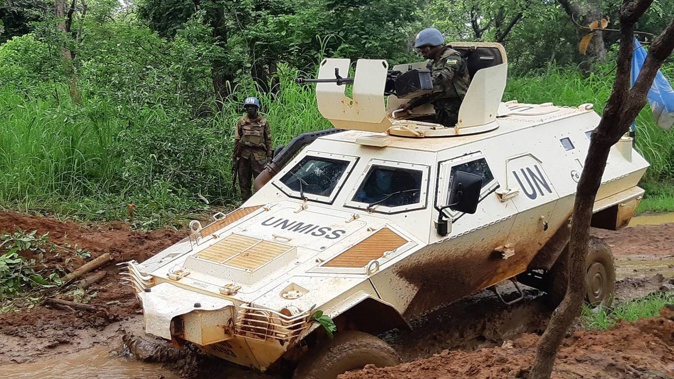
New Zealand will extend its peacekeeping contributions in South Sudan and the Middle East.
An international relations expert said the deployments were a chance for troops to get specialist training and learn from overseas counterparts.
Three Kiwis will stay with the UN Mission in South Sudan, where New Zealand has been involved since 2011.
South Sudan achieved independence in 2011 and soon after experienced civil war for about seven years.
In the past few days, violence across the border in the Sudanese region of Darfur reportedly led to more than 175 deaths.
New Zealander and former Labour Party MP and leader David Shearer was previously head of the United Nations mission in South Sudan.
Shearer last year told the Herald workers at the mission lived in large bases where the military was also present.
The second extended deployment is to the Middle East, where the Multinational Force and Observers (MFO) mission supervises the Egypt-Israel peace treaty on the Sinai Peninsula.
There, 28 New Zealanders are deployed and New Zealander Major General Evan Williams is the MFO Force Commander.
The Egypt-Israel treaty was signed in 1979.
The third peacekeeping deployment is to the UN Truce Supervision Organisation (UNTSO) which monitors borders between Israel and its Arab neighbours.
Relations between Israel and some Arab states have greatly improved in the past two years, partly as a result of shared concerns about Iran.
Some commentators have dubbed this the Arab-Israeli Axis, the Sunni-Israeli Axis, or the "Axis of Abraham".
New Zealand contributes eight people to UNTSO, out of 152 people from 27 countries deployed.
NZDF personnel have been with the truce supervision organisation since 1954.
The University of Auckland's Associate Professor Stephen Hoadley said the deployments provided good training and a chance for contact with military counterparts overseas.
"It's great for professional development."
He said peacekeepers could learn about cultural nuances, and people from less harmonious countries might learn from the NZDF's integrated Māori-Pākehā culture.
New Zealanders deployed on these missions would be extensively briefed on threats such as landmines and booby traps, Hoadley said.
"They get briefed before they go. They learn about side arms and they learn about how to shoot pistols, for example."
He said a range of people with combat, administrative or other experience were generally deployed.
Hoadley said in previous deployments to Bosnia and Afghanistan, NZDF troops were often trusted to relay concerns locals had to New Zealand's allies or partners.
"New Zealanders spent a lot of time sitting on hard, cold, concrete floors...The locals really appreciated having someone listen to what their problems were."
He said the South Sudan and Middle East deployments also had diplomatic benefits for New Zealand and were potentially were good for the country's reputation.
Defence Minister Peeni Henare today said the deployments would help the NZDF better prepare for possible challenges at home, in the Pacific and further abroad.
Foreign Minister Nanaia Mahuta said the deployments demonstrated New Zealand's commitment to promoting global peace and stability.
The mandates for all three deployments have been extended by two years to September 30, 2024.
Take your Radio, Podcasts and Music with you









